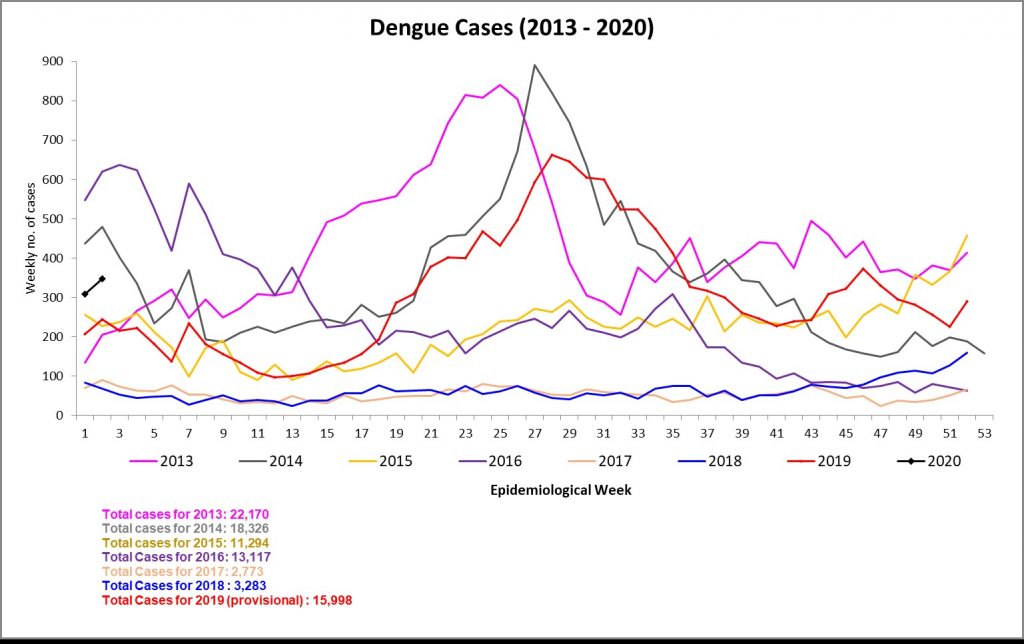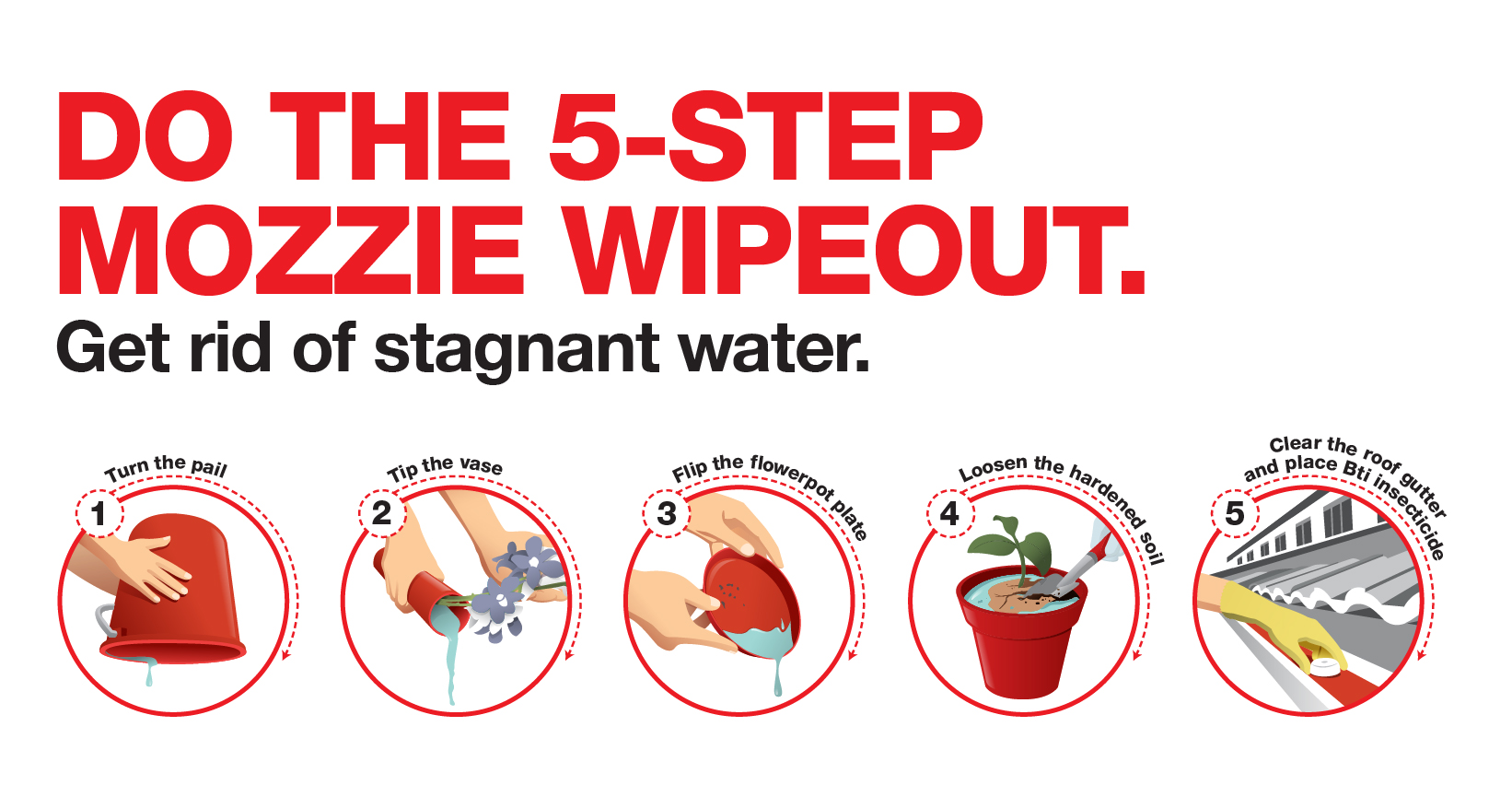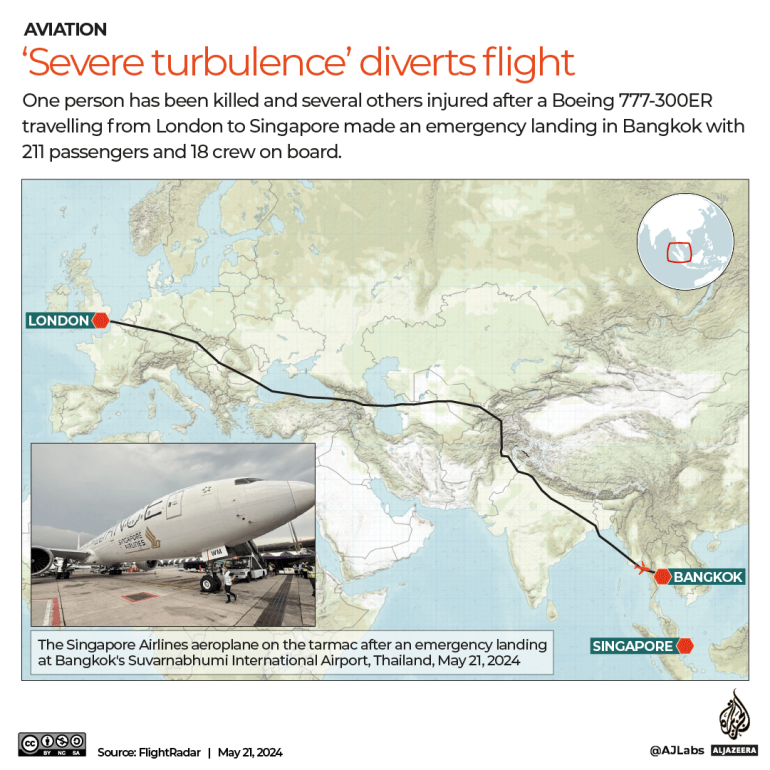Dengue cases in 2020 could rise above current levels, as the Aedes aegypti mosquito population and number of dengue cases remain high, amid higher circulation of the less common Dengue virus serotype 3 (DENV-3) in more clusters across the island.
The number of dengue cases has increased in the past three weeks, with 345 cases reported in the second week of 2020, following a five-week decline from mid-November to December 2019. A contributing factor and key concern is the high Aedes aegypti [1] mosquito population detected in the community. The Aedes aegypti mosquito population remains high and may increase with warmer temperatures, as higher temperatures facilitate faster development of the Aedes aegypti mosquito vector and faster replication of the dengue virus. More cases of the less common Dengue virus serotype 3 (DENV-3) have also been detected in more clusters across the island. If left unchecked, the current high Aedes aegypti mosquito population, coupled with the current high number of dengue cases, may lead to the dengue case numbers rising above current levels in 2020. NEA therefore urges all members of the public and stakeholders to stay vigilant and work together as a community to stem dengue transmission.
Dengue Situation in 2019
The total number of dengue cases reported in 2019 was 15,998, which is almost five times more than the number reported in 2018, but lower than the annual number of cases reported in the past outbreak years of 2013 and 2014 (Figure 1). Due to strengthened efforts by stakeholders and the community, the weekly number of dengue cases was brought down between 17 November and 21 December. However, the weekly number of dengue cases has been increasing since the end of 2019. Contributing to this has been the upward trend in the Aedes aegypti mosquito population in the community, as detected by NEA’s Gravitrap surveillance system.

The surge in dengue cases in 2019 may be attributable to several factors – including a high Aedes aegypti mosquito population, warmer weather and low population immunity. Climate change is anticipated to worsen the spread of mosquito-borne diseases such as dengue, as the warmer weather facilitates faster multiplication of the Aedes aegypti mosquito and dengue virus, increasing the chances of dengue transmission. At the same time, a large proportion of our population continues to be susceptible to dengue, given our population’s low immunity and successful vector control efforts over the years.
In 2019, NEA conducted about 900,000 inspections islandwide for mosquito breeding, including about 6,400 checks at construction sites, and uncovered more than 16,000 mosquito breeding habitats. Between January and December 2019 [2], about 7,900 enforcement actions have been taken against premise owners for mosquito breeding. About 400 summonses and 26 Stop Work Orders were issued to construction sites, and 13 contractors were charged in court for repeat offences.
Dengue Forecast for 2020
The predominant dengue virus serotype in Singapore has remained as Dengue virus serotype 2 (DENV-2) since 2016. However, we have seen an increase in Dengue virus serotype 3 (DENV-3) cases and clusters over the past month. As Singapore has not seen a DENV-3 outbreak in the last three decades, the population immunity for DENV-3 is low and therefore more susceptible to transmission of the virus. It is thus critical that all residents and stakeholders work closely together with NEA to break the dengue transmission in these clusters, and curtail the spread of the virus. Of the six large ongoing clusters, DENV-3 is detected in clusters at Jalan Bangau, Cashew Road, and Jalan Paras.
The high Aedes aegypti mosquito population in the community, current high number of dengue cases, and increase in circulation of DENV-3, could lead to weekly dengue cases rising above current levels in 2020. Concerted community action and sustained vector control efforts are thus needed to prevent further escalation of the Aedes aegypti mosquito population, and an increase in the number of people becoming ill with dengue.
In some of the current large dengue clusters, we have detected mosquito breeding multiple times in the same homes over the duration of the clusters. For example, in the Bukit Mugliston and Begonia Drive clusters, both of which started in October 2019, we have detected repeated mosquito breeding in 10 and four homes respectively. In these clusters, and also other large clusters like Elias Road and Jalan Bangau, mosquito breedings are still found in homes after three months of alerts to residents of the localised transmission in their neighbourhoods and intensive source reduction work by NEA. We urge everyone to work with NEA and do our part to remove stagnant water from our environment, to deprive the mosquitoes of their breeding habitats and break the dengue transmission chain. To safeguard public health, NEA will not hesitate to take action against residents and contractors for any mosquito breeding found in their premises. In particular, NEA will take strong enforcement action against recalcitrant errant premise owners.
Concerted, proactive and sustained preventive efforts by key stakeholders, community partners and residents
To facilitate community action, NEA has made publicly available on our NEA website, myENV app and other official channels, information on areas with relatively higher Aedes aegypti mosquito population, as detected through our Gravitrap surveillance system. This proactive effort supplements the existing comprehensive national dengue prevention and control efforts, which bring together our key stakeholders such as community partners, residents, Government and corporate entities, to focus on collective mosquito prevention measures. This will serve as a useful indicator for early intervention, to heighten awareness of the community to the risk of dengue and facilitate targeted action by key stakeholders, community partners and residents.
To keep dengue in check, NEA has maintained intensive vector control efforts in dengue clusters and areas with relatively higher Aedes aegypti mosquito population. Together with members of the Inter-Agency Dengue Task Force [3], as well as Town Councils, NEA will continue its efforts to remove mosquito breeding habitats from public areas and housing estates. Effective dengue prevention requires the vigilance and participation of everyone in the community. NEA alone cannot eradicate Aedes mosquitoes. We strongly urge all members of the public to do their part to prevent and remove any breeding habitats, and to remain vigilant in suppressing the Aedes aegypti mosquito population. These efforts will also contribute towards preventing the transmission of Zika and Chikungunya viruses, which are transmitted by the same mosquito vector.
Chinese New Year Advisory
Aedes mosquitoes can breed in clean stagnant water found in homes and other premises. As the Chinese New Year festive season approaches, homes and other premises are decorated with more ornamental plants. To pre-empt dengue, NEA has disseminated advisories to all plant nurseries ahead of the Chinese New Year period. All stakeholders are urged to prevent mosquito breeding and keep the mosquito population low, by immediately and regularly practicing the following steps to remove stagnant water:
- Turn the pail
- Tip the vase
- Flip the flowerpot plate
- Loosen the hardened soil
- Clear the roof gutter and place Bti insecticide inside
Homeowners doing spring cleaning are also reminded to properly dispose of any refuse, including large furniture or household items, to avoid the discarded materials from becoming unintentional mosquito breeding habitats. Those decorating their homes and premises with ornamental plants are urged to take care of these plants and prevent them from becoming mosquito breeding habitats, by making sure that water does not accumulate in the flowerpot plates or on top of the hardened soil.

Those planning to go overseas for vacation during the upcoming holiday period should also mosquito-proof their homes before they travel. Residents can keep their neighbourhoods safe from dengue by taking the following mosquito prevention measures:
- Cover all toilet bowls in the home
- Seal the overflow pipe of the flushing cistern
- Cover and seal all floor traps
- Add sand granular insecticide to areas where stagnant water cannot be easily removed
- Clear blockages and place Bti insecticide in roof gutters
- Turn over all water storage containers and wipe dry the rims
- Ask a relative or close friend to check your home regularly for stagnant water, if you are going away for a long period of time
- Leave your contact details with your neighbours or the neighbourhood police post/centre, so that you can be easily contacted
Persons infected with dengue should protect themselves from mosquito bites by applying repellent regularly, and those showing symptoms suggestive of dengue should see a doctor early to be diagnosed. The latest updates on the dengue situation can be found on the NEA website, Stop Dengue Now Facebook page, and myENV app.
[1] Aedes aegypti is the main vector of dengue, and dwells in urban areas. The same mosquito vector also transmits Zika, Yellow fever and Chikungunya viruses. Hence, the preventive measures implemented will also help to prevent the transmission of these vector-borne diseases in Singapore. [2] Provisional figures as of 8 Jan 2020. [3] The Inter-Agency Dengue Task Force comprises 28 stakeholders from the People, Public and Private (3P) sectors, such as LTA, SLA, HDB and NParks, and coordinates nationwide dengue control efforts.









